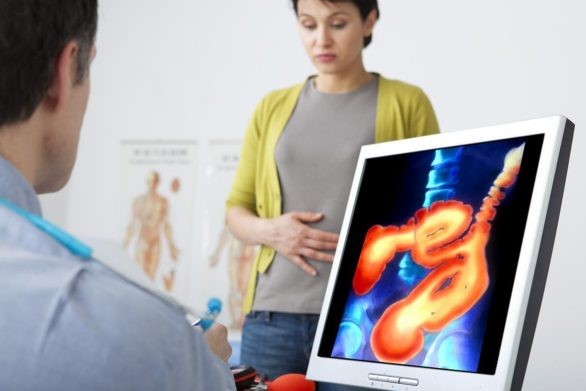
Hyperaemic gastritis: what it is, how to prevent it, how to treat it and what diet to follow
Hyperemic gastritis is an inflammation, to which our organism, or more precisely the gastric mucosa, is subjected, of mild or life-threatening magnitude
It refers to a reddening of the mucous membrane (also called the membrane), which covers the inside of the body’s hollow organs with a layer of cells.
Thus, it is nothing more than a tissue that covers the cavities of our body.
Although in milder cases it can be treated with medication, to prevent the reddening of the mucous membrane it is always advisable to use a proper diet as it is of fundamental importance for this type of pathology.
This is also because drugs often have the role of acting on such reddening by slightly alleviating, and thus not completely eliminating, the underlying problem, i.e., hyperacidity and gastric burning.
Therefore, to date, there are diets and foods to take, and others to avoid, that allow us to cure hyperemic gastritis.
Foods and cures for hyperemic gastritis
To prevent and treat this condition, one must first study the causes that led to it.
Often it is not only linked to a poor diet, but the problem can also be smoking, which contributes by promoting reflux and increasing acidity.
Causes of gastritis are linked to lunches and dinners that are too rich in courses and therefore include fatty and seasoned foods, but also drinks (if too hot or too cold) or drinks containing tomatoes and/or citrus fruits, or drinks with too much caffeine.
But that is not all, because stress also influences leading to an increase in gastro-oesophageal reflux.
Digestion disorders from gastritis?
Hyperemic gastritis leads to poor digestion, especially after fatty and rich lunches and dinners.
Therefore, following a diet with small but rich portions without the use of spicy spices, fried foods and alcohol-containing drinks is the first step to cure it.
Not only does it not include the above, but it also eliminates foods with a high acid content.
Foods allowed and not allowed to avoid gastritis
Often, or even every day, we eat foods that we think are healthy because they are beneficial for our organism, but overdoing it also leads to hyperemic gastritis.
Foods to avoid because they are risky are: pasta (with cheese or tomato), sweet foods (i.e. milkshakes, ice cream, chocolate, biscuits, cakes, even with cream), drinks (such as coffee, tea, orange, lemon, cranberry and tomato juices), citrus fruits, cottage cheese, potatoes, Chips, onions (if eaten raw), but also meats (such as minced beef, sirloin, chicken) and alcoholic drinks.
Medium-risk foods for gastritis
Foods that are not high-risk, but are nonetheless risky, albeit medium risk, are: milk and its derivatives (e.g. yoghurt, skimmed or semi-skimmed milk, cheese, mozzarella), juices (especially apple, peach, raspberry, strawberry and blueberry juices), eggs (if fried), frying (e.g. Chips, fried fish, etc.), ham, tuna (especially canned tuna because it contains colouring agents), as well as garlic and raw onions.
Diet with recommended foods to prevent and treat hyperemic gastritis
The foods recommended against gastritis are vegetables (such as peas, carrots, cabbage, beans), but also fruit (such as bananas and grapes), cereals, white flour bread, dairy products (such as cheese, feta, soya cheese) but also fish (not fried), white meat (such as roast beef) and evo oil (to be put on raw food).
Therefore, those who are tolerant to certain foods and/or gluten can follow this diet to their heart’s content, thus excluding foods that the body cannot tolerate. In addition, fruit juices (with the exception of acid fruit such as grapefruit and other citrus fruits) are excellent for taking vitamins, especially early in the morning along with a healthy breakfast, which, however, as mentioned above, should be excluded for those who are intolerant because it would cause increased and unpleasant heartburn by affecting the gastric mucosa.
Hyperemic gastritis, useful information
In order to prevent this disease, one must always take into account quantities, as these are one of the major causes of gastroesophageal disorders.
This is because lunches and dinners with too many courses lead to the stomach becoming reddened, causing serious abrasions in the worst cases.
One should therefore eat slowly, five times a day, small but rich portions, chewing everything well.
Therefore, it is only fair to point out that the advice given for the treatment and prevention of hyperemic gastritis should NOT and CANNOT push any person away from consulting their specialist for advice and clarification.
Read Also
Emergency Live Even More…Live: Download The New Free App Of Your Newspaper For IOS And Android
Gastritis: What It Is, What The Symptoms Are And What To Do
Esophagogastroduodenoscopy (EGD Test): How It Is Performed
Gastro-Oesophageal Reflux: Causes And Remedies
Gastro-Oesophageal Reflux: Symptoms, Diagnosis And Treatment
Straight Leg Raise: The New Manoeuvre To Diagnose Gastro-Oesophageal Reflux Disease
Gastroenterology: Endoscopic Treatment For Gastro-Oesophageal Reflux
Oesophagitis: Symptoms, Diagnosis And Treatment
Asthma, The Disease That Takes Your Breath Away
Gastroesophageal Reflux: Causes, Symptoms, Tests For Diagnosis And Treatment
Global Strategy For Asthma Management And Prevention
Paediatrics: ‘Asthma May Have ‘Protective’ Action Against Covid’
Esophageal Achalasia, The Treatment Is Endoscopic
Oesophageal Achalasia: Symptoms And How To Treat It
Eosinophilic Oesophagitis: What It Is, What The Symptoms Are And How To Treat It
Gastroesophageal Reflux: Causes, Symptoms, Tests For Diagnosis And Treatment
Irritable Bowel Syndrome (IBS): A Benign Condition To Keep Under Control
Gastric Lavage: How Does It Work And When To Do It?
Gastro-Oesophageal Reflux: What It Is, What Are The Symptoms And What Is The Treatment
Poison Mushroom Poisoning: What To Do? How Does Poisoning Manifest Itself?
Hydrocarbon Poisoning: Symptoms, Diagnosis And Treatment
Mercury Poisoning: What You Should Know
Cadmium Poisoning: Symptoms, Diagnosis And Treatment
Toxic Shock Syndrome In Emergencies: What Is It?
Cerebral Intoxications: Hepatic Or Porto-Systemic Encephalopathy
Scombroid Syndrome: Symptoms Of This Food Poisoning Due To Histidine


